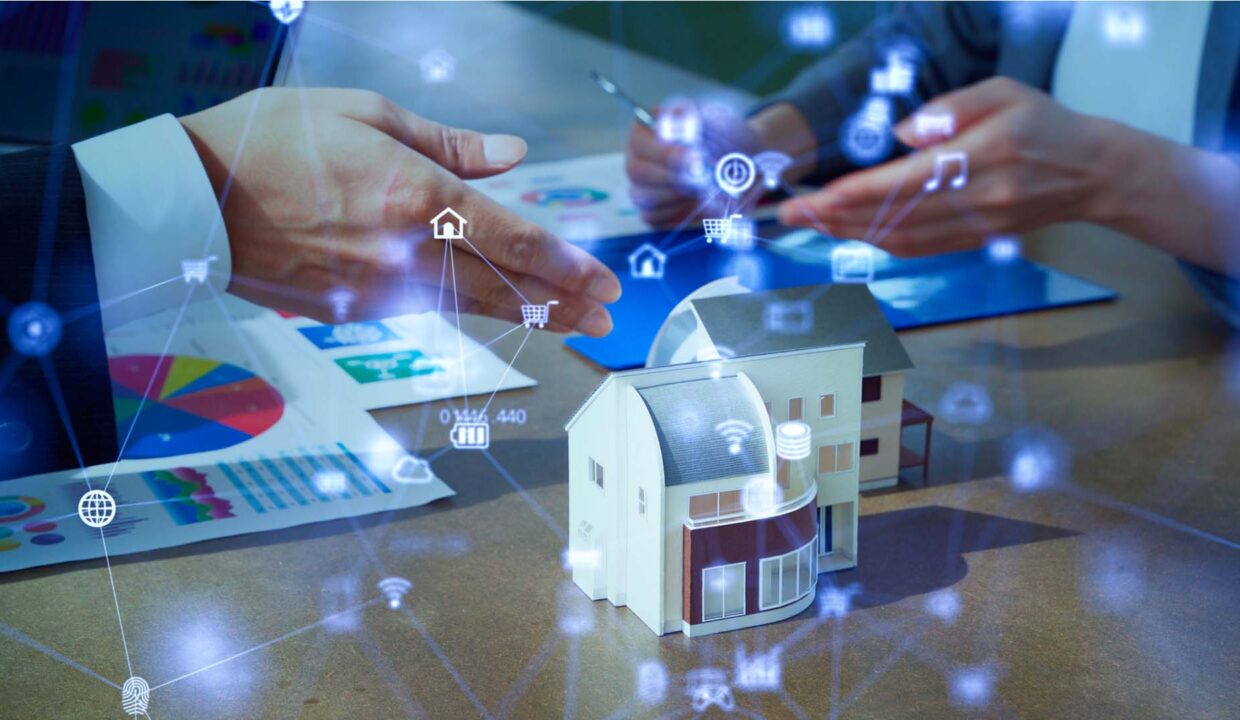
The real estate sector is undergoing a real revolution thanks to digitalisation, the advent of advanced technologies has changed the way buyers, sellers and investors interact with the market, bringing greater efficiency, security and accessibility to transactions.
AI and big data tools have enabled more accurate analysis of the real estate market. These advances allow companies to predict property price fluctuations, identify investment opportunities, and segment buyers based on their preferences. Artificial intelligence has also been integrated into chatbots and virtual assistants, providing automated advice to clients, enhancing user experience, and reducing the need for human intervention in repetitive tasks.
On the other hand, big data facilitates the storage and real-time processing of vast amounts of information, helping investors make more informed decisions. Smart databases can identify buying patterns, demand trends, and price shifts across different regions, offering added value for those looking to maximize their investments.
Virtual Tours and Augmented Reality: Redefining the Buying Experience
The introduction of virtual tours and augmented reality has dramatically changed how buyers explore properties. In the past, physical visits were essential, often involving travel and additional costs. Now, with 3D visualization tools, clients can tour properties from anywhere in the world with impressive detail—even customizing finishes, layouts, and décor through interactive technology.
This innovation has been particularly valuable in high-end markets, where buyers may not be physically available to visit every property of interest. Virtual tours have also made international transactions more accessible, enabling foreign investors to purchase real estate without needing to travel.
Blockchain and Transaction Security:
Blockchain technology has brought a new level of security and transparency to real estate transactions. It enables the creation of smart contracts that eliminate intermediaries, ensuring faster and more reliable processes. Smart contracts automatically enforce all agreed-upon terms, reducing fraud risks and speeding up closing times.
Another significant benefit of blockchain is the decentralization of property records. Instead of relying solely on government entities or banks, transactions are recorded on a secure, immutable network, simplifying bureaucratic procedures and lowering the costs associated with buying and selling property.
Digital Platforms and Access to New Markets:
Digital platforms have democratized access to the real estate market, allowing investors worldwide to participate in property acquisitions regardless of location. The rise of specialized portals and real estate marketplaces has simplified buying and selling by providing detailed information, real-time comparisons, and access to online financing.
Additionally, the emergence of real estate crowdfunding has made it possible for smaller investors to join high-value projects with minimal contributions. This collaborative investment model has expanded opportunities for those previously excluded from large-scale developments, diversifying capital and reducing individual risk.
The Future of Digitalization in Real Estate:
Digitalization is just getting started. In the future, emerging technologies like mixed reality and predictive AI are expected to further optimize the property buying and selling experience. Machine learning algorithms could soon accurately forecast changes in supply and demand, enabling more sophisticated and personalized investment strategies.
Moreover, construction automation through robotics and the use of digital twins in infrastructure design could speed up project development timelines, cut costs, and enhance building sustainability.
Conclusion
Digitalization has transformed the real estate sector in countless ways, enhancing accessibility, security, and transaction efficiency. From artificial intelligence to blockchain, each innovation is adding value and bringing new momentum to a traditionally rigid market. Those who embrace these technologies will be better equipped to seize opportunities and tackle the challenges of today’s and tomorrow’s market.
If you want to learn more about how technology is revolutionizing the industry and how you can benefit from these innovations, our team of experts is here to guide you.
📢 Share your thoughts on digitalization in the real estate market. What do you think will be the next big breakthrough in this space?


